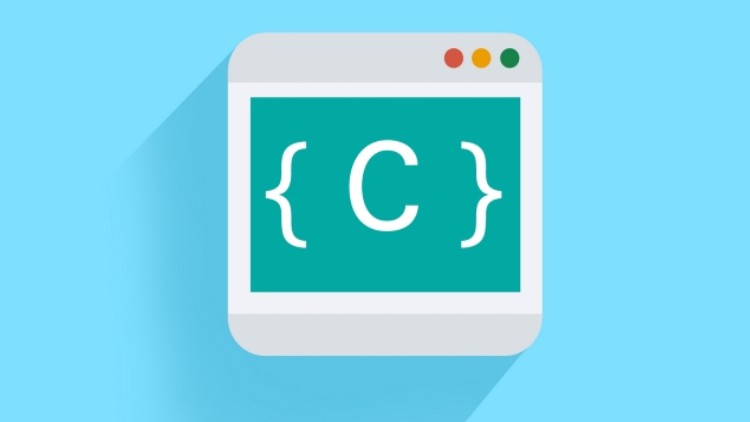
Test your knowledge with practice problems, quizzes. Build your confidence. And get exam-day ready.
What you will learn
C Programming Problems
Understand the fundamentals of the C Programming Language
Make yourself more marketable for entry level programming positions
Create your first C Application
Description
i made practice test help you track your progress, figure out what you don’t understand and get it right with step-by-step explanations.
C is a general-purpose, compiled programming language. It is a procedural language and does not support object-oriented programming styles. It was first created in 1969. Unlike many old programming languages, it is still a prevalent language, making top 10 lists on places like Github. The Unix operating system was the first major program written in C because it is a low-level language that compiles directly to assembly, while other languages compile into C. Because of this, it is also used often in embedded systems or for high-performance software. Most Adobe applications are written in the C programming language. It is also used in IoT devices, database software, web browsers, and many desktop applications that need to perform well. C is also used to write compilers for other programming languages that compile into C code.
What are the benefits of using C?
Many other programming languages like Python, C++, and Java are based on C, so you can apply your knowledge of C to other programming projects. C is a powerful and efficient language that compiles assembly code and can interact with many types of hardware, not just desktop computers, laptops, and servers. It is flexible and machine-independent. Code that you write on one system can be compiled on an entirely different platform as long as there is a compiler available. C is a mid-level language, meaning that it supports both high- and low-level programming with a simpler syntax than other low-level languages and the equivalent power and speed. Many high-performance algorithms can be built with the C language and can use C in complex calculations and operations.
What is the difference between C and C++?
C++ is based on the C language, but the languages have quite a few differences. C is only a procedural programming language, while the C++ language supports both procedural and object-oriented programming styles. Both languages come with standard libraries, but C++ has a much larger selection of libraries built into the language. C has 32 keywords, and C++ has 63 keywords. Data and functions are separated in the C language, whereas functions and data in the C++ language are encapsulated in objects. C++ supports namespaces so you can use variables in different packages, which C does not. You can use reference variables in C++ while you cannot in C. Code written in the C language is function-driven, while objects drive the source code of C++ projects.